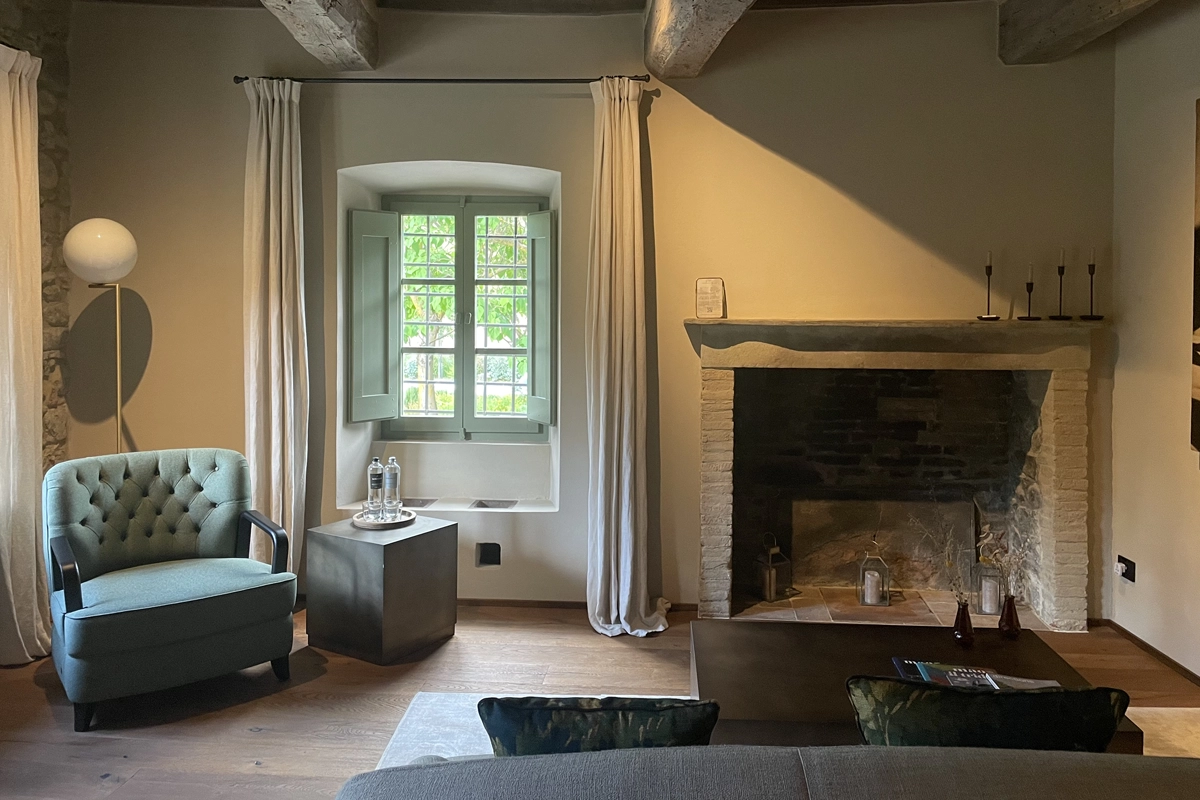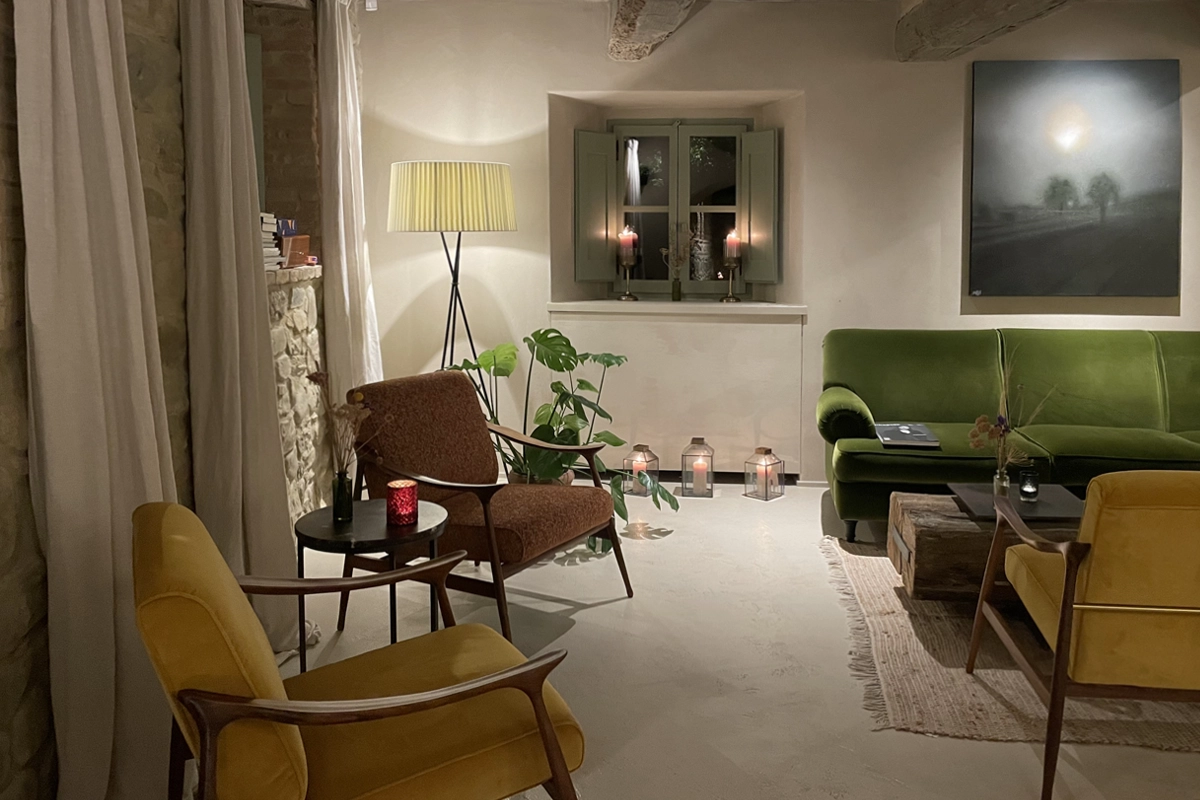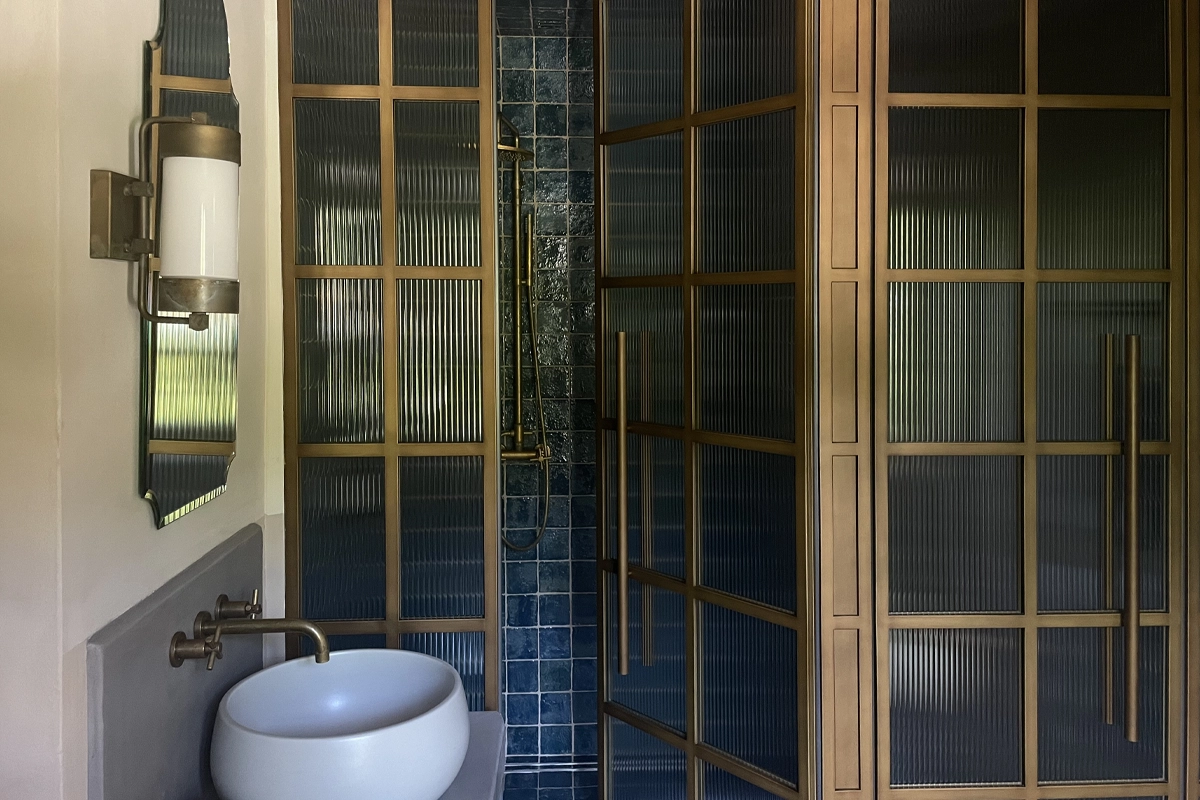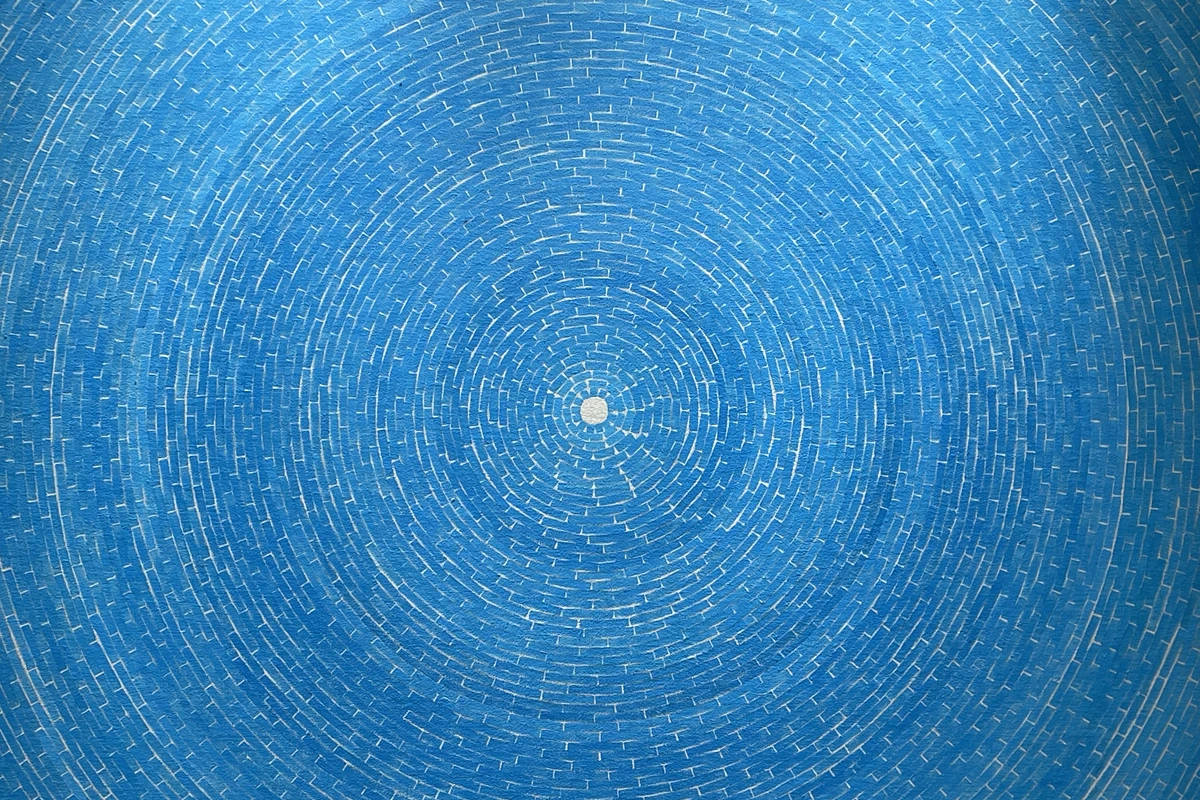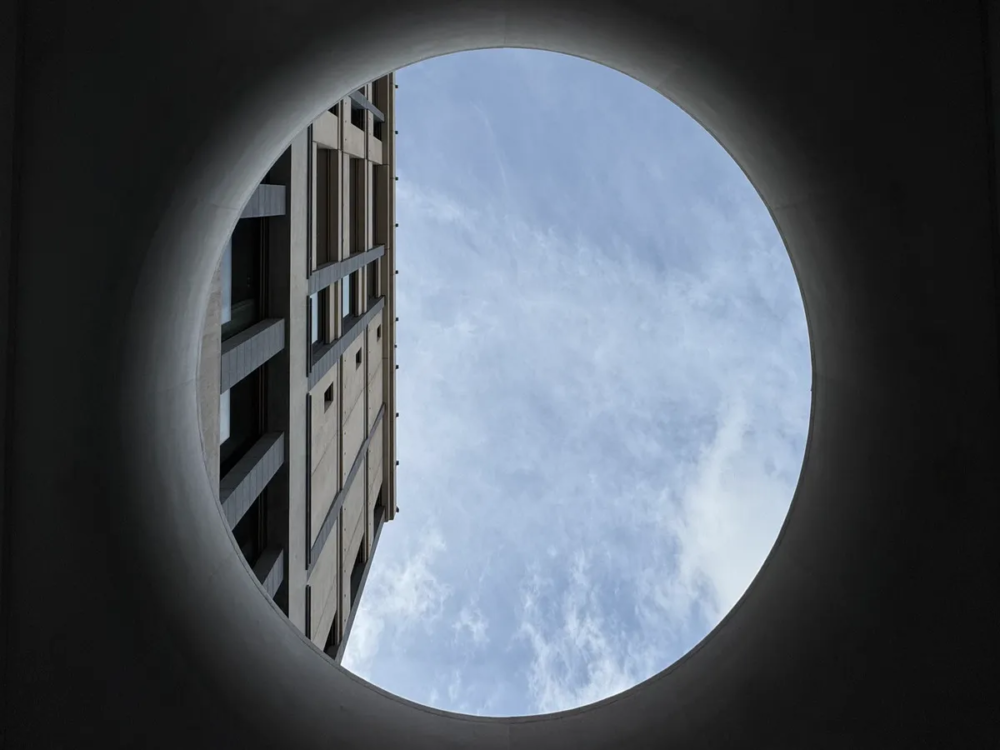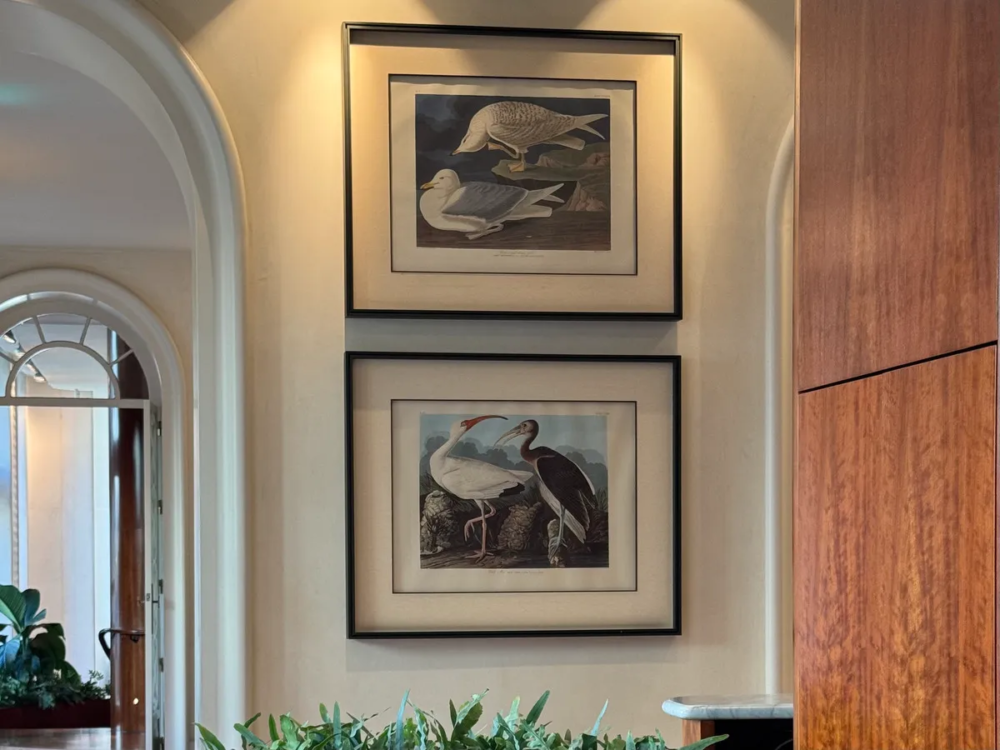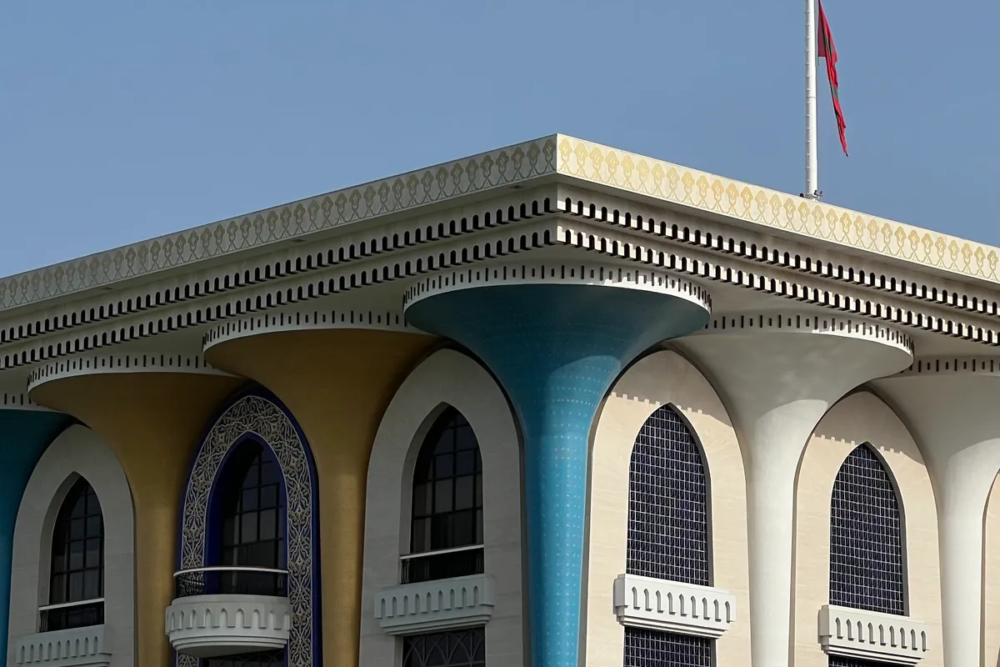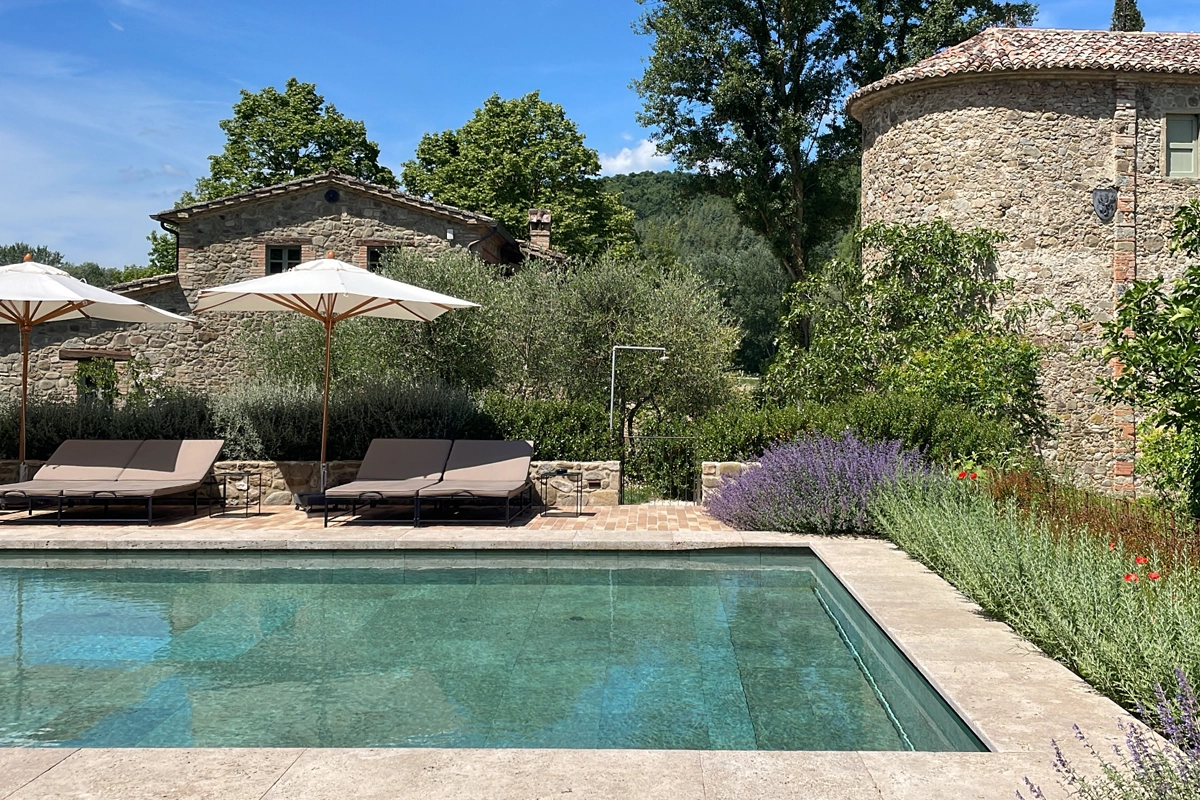
Vocabolo Moscatelli: a former monastery, a spiritual healer
Vocabolo Moscatelli is nestled amid Umbria’s forests, providing a shady refuge for travelers as it did in the past for its monks. Hospitality and sustainability here resemble spiritual practices
Vocabolo Moscatelli: the etymology of a hidden place
Around a lit fireplace in the midst of thickly wooded countryside, Frederik Kubierschky explains the meaning of the name he chose to give his accommodation facility, Vocabolo Moscatelli. «Vocabolo, in toponymy, is still rarely used in Italian to introduce the name of a place in the countryside that is sparse or devoid of dwellings». The etymology probably derives from the voices of the people who inhabited small country villages (in Latin vocabulum, meaning to call), and whose noise made a group of houses recognizable in the silent countryside of Umbria.
«Vocabolo is a place where one feels at home and can feel the great green heart of Italy beat», Frederik Kubierschky continues. Born in Germany and raised in Italy, Kubierschky has a past as a Chef Concierge at Switzerland’s top five-star hotels.
Vocabolo Moscatelli: a former monastery reopened in 2022. Frederik Kubierschky and Catharina Lütjens behind the project of Vocabolo Moscatelli
Kubierschky and his partner Catharina Lütjens Vocabolo Moscatelli opened its doors in August 2022 with a focus on rural tranquility and upscale regionality. The property, housed within a former monastery built in the 1300s, pays homage to the region of Umbria. Original beamed ceilings, heavy stone fireplaces, and soft wooden floors are met with open, airy spaces, fresh pops of color, and custom artworks and furnishings made by local artists and artisans. The result is a mixture of history and modernity, a property where memory coexists with timeless contemporary design.
To restore and renovate the monastery’s three buildings, Kubierschky and Lütjens enlisted Jacopo Venerosi Pesciolini of studio Archiloop, who also oversaw the interior design. Pesciolini designed every space – from the onsite restaurant and bar to the pool to the guest rooms and suites—individually. As a result, each area has its own identity, expressed through varied color palettes, materials, and furnishings. However, specific uniting elements, like wood floors, exposed terracotta brick and natural stone walls, and iron and brass detailing, are used throughout the property. Moreover, artworks adorning the spaces were curated by Matteo Pacini and created by more than 10 artists, including Louis Boujac, Domenica Regazzoni, and Massimiliano Poggioni. Additional décor was made by the Umbrian brand Endiadi Ceramics.
[envira-gallery id=”140025″]
Vocabolo Moscatelli an the relation with Umbria: a story of mystery and misandry
Vocabolo Moscatelli is located on the outskirts of Calzolaro, a hamlet in Umbria, Italy. The region is known for hills rich with farmland, twisting vineyards, and medieval towns. Only nine kilometers from the Tuscan border, the structure is surrounded by towns like Assisi, Cortona, Spoleto, Terni, and Perugia.
A sense of deep character permeates the area. Umbria is a region called The heart of Italy because of its central, landlocked location. A forested, mountainous region that in centuries past was a refuge for those fleeing civilization. One could easily lose one’s way in such an impenetrable, rarefied place. As a result, it still holds a fascination and mystery that is perfect for the misandry of 20th-century exiles.
Fabio Crociani and the restaurant Matite, rethinking traditions from what the garden offers every day
Despite Umbria is famous for its meat, Vocabolo Moscatelli’s restaurant Matite, offers a plant-based menu with ingredients from the garden. Here, typical cuisine is reinvented through vegetarian dishes; produce is sourced from suppliers around the corner as well as the onsite garden and orchard. The bespoke terracotta-and-brass bar is centrally positioned, almost like a live cooking station, to encourage guests to gather and mingle around it. Similarly, the restaurant features a four-meter-long mahogany dining table, enabling multiple parties to share a meal. Additional custom pieces include marble dining tables and coffee tables made from repurposed wood ceiling beams.
There’s a one-hectare Mediterranean garden designed by Fabiano Crociani, where guests can wander through vegetable plants and a grove of ancient fruit trees native to Umbria, raised by agronomist Isabella Dalla Ragione and her nonprofit, the Arboreal Archaeology Foundation.
Heightening the sense of community, Kubierschky and Lütjens place an emphasis on hiring locally. «I’m interested in recruiting collaborators who come from the surrounding area, not just the usual hotel schools»,Kubierschky says. «Our staff is an integral part of this project». This approach to filling the property with locals directly affects the guest experience, allowing visitors to, in turn, connect with and become part of the Vocabolo community.
Vocabolo Moscatelli
Oak forests, gnarled vineyards and Mediterranean landscapes. In this setting, a 12th-century monastery has been turned into a design hotel, Vocabolo Moscatelli. The hotel is based in Calzolaro, Umbria, near Marche and Tuscany.
Editorial Team
